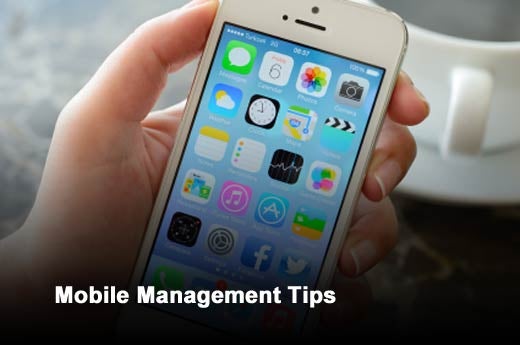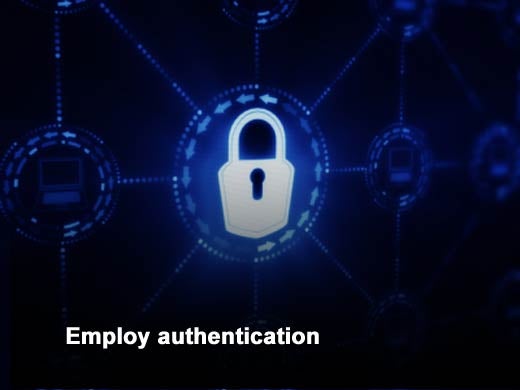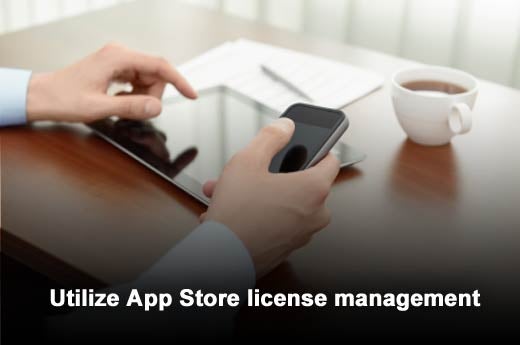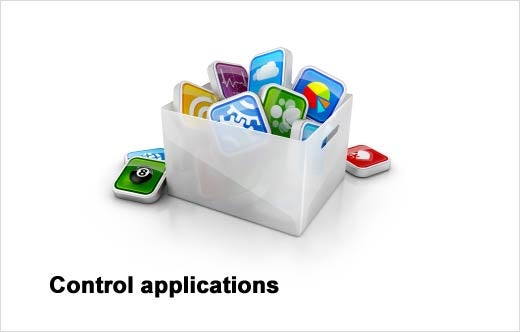With Apple’s launch of iOS7, consumers are rushing to make sure that they have the latest and greatest software on their mobile devices. But, this means greater challenges for the enterprise in terms of managing employees’ mobile devices and preventing security risks. There are always issues when new software is released that can be detrimental to an entire enterprise. Here are some mobile management tips, from Troy Fulton, director of product marketing at Tangoe, to help with the latest mobile rollout.
Click through for six mobile management tips from Troy Fulton, director of product marketing at Tangoe.
Ownership does not trust make. With the new “open in management” feature in iOS 7, IT practitioners should have employees authenticate to their respective authorized apps via SSO. IT managers should also leverage the certificate management tools for multifactor authentication. What happens if the device is out of compliance (such as being jailbroken)?
A systems-based mobile strategy monitors compliance in real time and responds quickly. If out of compliance, features that support access to applications and data should be disabled automatically as part of the rules engine respective to the policy violation scenario. The device should also be blocked from accessing Exchange or an app store.
Per app VPN moves security into the application. While useful for BYOD, the device must be monitored for compliant usage to ensure any device, IL or CL, with VPN enabled meets security policy requirements to protect enterprise resources, such as enforcing the use of a trusted Wi-Fi network when available. What about data throughput cost such as roaming in 4G? At a price of $50 US per MB, per app VPN connectivity can get seven-figure expensive in 10 minutes.
Understand and utilize the App Store license management tool. The App Store Volume Purchase Program now offers businesses the ability to assign apps to their users while keeping full ownership and control over app licenses. IT should have visibility into the apps downloaded on iOS 7 devices and enforce the AUPs (acceptable usage policies) for those apps. IT should track where every app license is being used and terminate the license on a user’s device if there are server policy violations, they leave the company, or are no longer in need of the app, as part of both application and device lifecycle management.
A mobile device management strategy is not “one size fits all,” and the influx of more devices and device types (even the rise of BYOPC) is creating increased challenges for enterprises. In the past, enterprises have looked at checking off a list of point solutions, but didn’t have an integrated strategy for managing their mobile environment. Today, enterprises need a holistic, systems approach for effective policy management that protects data and supports enterprise agility.
IT roles are increasingly no longer in IT, but in the business units. It’s no longer enough for IT to apply technical expertise from the position of the “No” authority. IT leaders must guide, consult and monitor. For instance, for BYOD to succeed from both cost and security perspectives, locking down a device may not be appropriate for most employees with low-value data. IT can support both business unit end results and employee needs to achieve agility objectives.
A BYOD environment should be governed by the mantra “Trustability in Context” – that is, users should be given the appropriate level of access based upon their need or level within the organization. While IT’s perceived value is in providing business users with access to apps that in turn increase productivity, this model of allowing access to a large number of apps should be reconsidered. IT should actually allow access to fewer apps in order to reduce cost and risks for BYOD devices which should be viewed with “less trust.”









